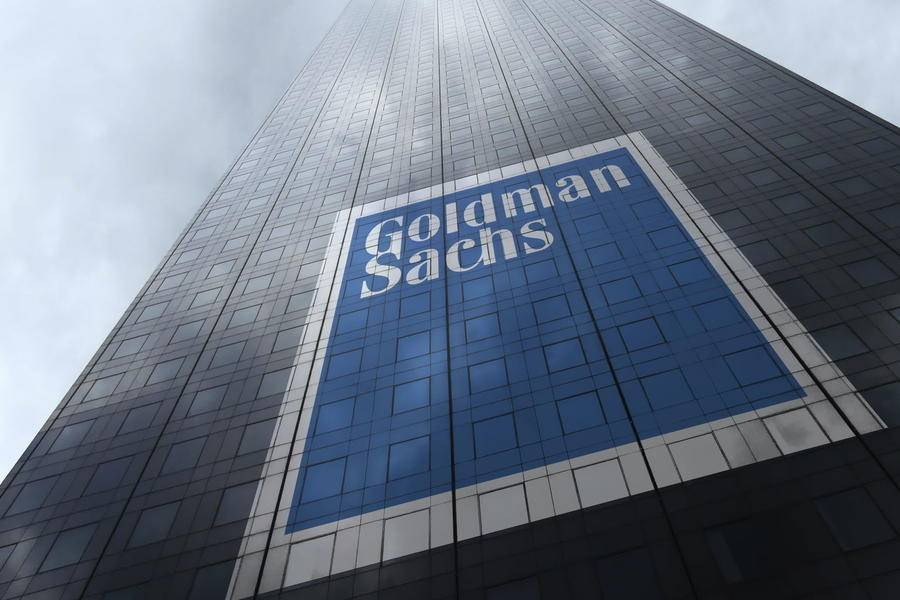
Goldman Sachs, an international investment bank. Established in 1869, Goldman Sachs Group provides investment management, securities, asset management, prime brokerage, and securities underwriting services. It is one of the oldest and largest investment banks in the world
On July 19, 2018, the Fortune Global 500 list was released, and Goldman Sachs ranked 259th.
In July 2019, Fortune Global 500 was released and ranked 204th.
On January 22, 2020, it ranked 27th on the 2020 Fortune Global Most Admired Companies List.
Economic Analysis of Europe in 2024
2023 has been a mixed year for the eurozone. At first, the economy showed astonishing resilience to the energy crisis, violating expectations for recession. However, since the spring, economic growth has been disappointing due to the sustained negative impact of high oil prices, monetary tightening, and a significant drag on global industrial activity. Therefore, the growth performance of the eurozone this year is significantly lagging behind that of the United States.
We expect 2024 to be a better year for the eurozone economy for three reasons. Firstly, with the reduction of these unfavorable factors, we hope for faster growth. Real disposable income will significantly increase, as the headline inflation slows sharply and nominal wage growth remains fi RM, supporting consumer spending. As the European Central Bank maintains interest rate stability, the negative credit drag should significantly subside in H1. We hope to normalize the growth of the manufacturing industry, despite the limited upside space due to the mixed global industrial environment.
We expect these gradually fading unfavorable factors to outweigh the drag of the increase in scale, and we hope to achieve a regional growth rate of 0.9% next year, slightly higher than consensus. From a national perspective, we expect Germany to be 0.6%, France 1.1%, Italy 0.7%, and Spain 1.7%.
2024 Economic Analysis of the United States
The US economy eliminated concerns about recession in 2023 and made substantial progress in achieving a soft landing. The key surprise is that GDP growth is much stronger than expected, although this has not prevented the labor market from continuing to rebalance or inflation from continuing to decline.
We expect GDP growth of 1.8% (or 2.1% for the entire year) in the fourth quarter/fourth quarter of 2024, easily surpassing consensus expectations again. We predict a consumption growth of slightly less than 2%, and a nearly 3% increase in actual disposable income, partially offset by a 1 percentage point increase in savings rate. We also predict that due to the surge in manufacturing facility investment driven by subsidies under the CHIPS Act and the I fi Reduction Act, the growth of commercial investment will slow by about 2%, and as housing shortages continue to suppress the impact of reduced affordability, residential investment will also slow down.
We expect that once the core PCE in inflation drops below 2.5%, the Federal Open Market Committee will cut interest rates for the first time in Q4 2024. Then, we expect to cut interest rates by 25 basis points every quarter until Q2 2026, when the federal funds rate will reach 3.5-3.75%.
China 2024 Economic Analysis
The long-awaited macro rebalancing is underway
China's GDP growth will slow from 5.3% in 2023 to 4.8% in 2024, reflecting the continued drag on economic growth from the sluggish real estate market. However, with the incremental growth driving force of the service economy, emerging (the Belt and Road), high value-added exports, new manufacturing and new industries, the real estate downturn that may have lasted for many years has intensified and accelerated the inevitable process of macroeconomic rebalancing.
We expect the MSCI and CSI300 indices in China to grow by 12% and 16% in 2024, driven by our expected 10% increase in earnings per share and moderate valuation growth. The market's earnings expectations for 2024 and 2025 appear optimistic, but the suppressed valuations contain bearish policies and/or geopolitical prospects, indicating that if these concerns subside, economic growth will accelerate again.

Recently, according to Xinhua News Agency, a fire accident at a clothing warehouse in Mansura, Daguhliya Province, Egypt, has once again brought public safety issues into the spotlight.
Recently, according to Xinhua News Agency, a fire accident …
Recently, the European Union imposed a huge fine of 120 mil…
Israeli police made a surprise visit to the compound of the…
The US government has launched a $12 billion aid package fo…
The yield on Germany's benchmark government bonds rose to i…
Due to the continuous aging of society and the soaring numb…